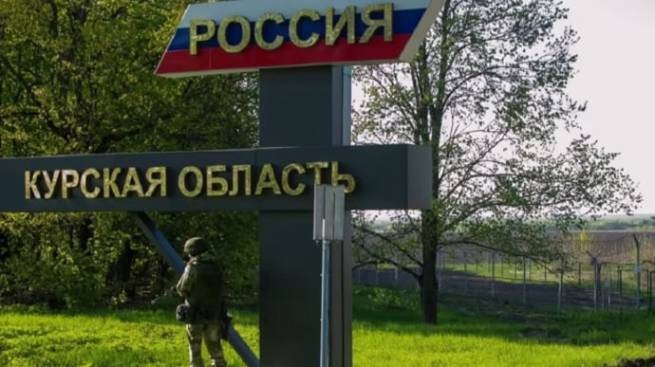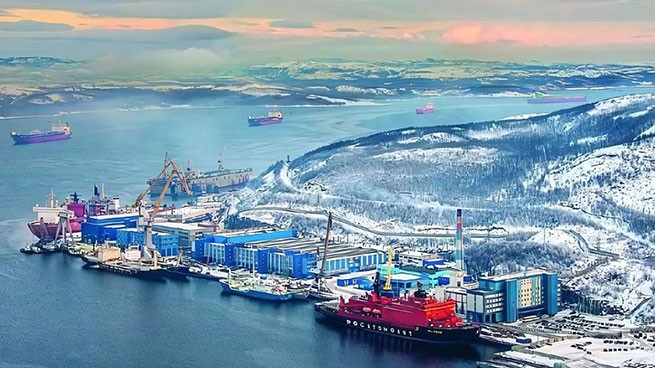Kazakhstan, Azerbaijan and Russia are strengthening their positions through participation in BRICS and the development of key transport corridors “North-South” and the Northern Sea Route, which increases their geopolitical influence.
In recent months, Kazakhstan and Azerbaijan have announced their bids to join BRICS. This process not only underlines their strategic importance in the Eurasian region, but also reflects their critical importance for the functioning of the North-South Transport Corridor. This corridor links Russia to the Persian Gulf, passing through Iran and Central Asia, giving the countries of the region access to the markets of the Indian Ocean, Southeast Asia and Africa.
Kazakhstan: Potential for BRICS Participation
Economic importance
Kazakhstan has significant reserves of oil, gas, uranium and metals, making it an important player in the global energy sector. With its entry into BRICS, Kazakhstan plans to increase oil production to 100 million tons by 2025. It is also important to note that Kazakhstan is actively developing its energy infrastructure and is cooperating with China to modernize oil and gas facilities.
Transport corridors
Kazakhstan plays an important role in providing transport links between Asia and Europe, which is of great importance for BRICS. The Middle Corridor (Trans-Caspian International Transport Route) project is a key component of Kazakhstan’s infrastructure plans. This corridor links China to Europe via Kazakhstan and Azerbaijan, providing alternative routes for cargo transportation. Kazakhstan’s inclusion in BRICS will provide access to critical transport routes.
Geopolitical position
Kazakhstan occupies a strategic location in Central Asia, making it an important link in BRICS’ efforts to expand its influence in Eurasia. As a neighbor to China and Russia, Kazakhstan has strong political and economic ties with both countries. This opens up additional opportunities for interaction within the bloc and could also help strengthen cooperation under the Belt and Road Initiative.
Azerbaijan: Strategic Importance for BRICS
Energy resources
Azerbaijan is one of the key oil and gas exporters in the Caspian Sea region. The country has significant hydrocarbon reserves, which are already being supplied to Europe through projects such as the Southern Gas Corridor and Baku-Tbilisi-Ceyhan. Azerbaijan's accession to BRICS will ensure stable energy supplies, especially in the context of sanctions against Russia and Iran.
Transport infrastructure
Azerbaijan plays an important role in the development of transport corridors such as the North-South corridor, which links Russia with Iran via Azerbaijan. This corridor allows for the efficient transportation of goods from Russia to the Persian Gulf, providing an alternative to routes through the Suez Canal. Azerbaijan’s inclusion in BRICS will expand its influence on key transport routes between Europe and Asia, ensuring more efficient use of existing infrastructure.
Multi-vector foreign policy
Azerbaijan pursues a multi-vector foreign policy aimed at balancing between the East and the West. Joining BRICS will give Azerbaijan the opportunity to strengthen its position on the international stage without having to make major political or economic concessions. It will also allow Baku to strengthen its relations with Russia, China and Iran, while maintaining ties with the European Union and the United States.
Development of the Northern Sea Route in Russia. Strengthening trade ties among BRICS members
The Northern Sea Route offers the BRICS countries a new and shorter route for transporting goods between Europe and Asia. In the context of globalization and growing volumes of international trade, this route will be critical. Traditional routes through the Suez Canal are often overloaded and can face delays, which increases delivery times and logistics costs. The Northern Sea Route, on the contrary, allows to reduce the delivery time of goods by 10-15 days, which makes it attractive for exporters.
Reducing delivery times is especially important for goods with a limited shelf life or high-value-added products such as electronics, textiles and automobiles. This allows BRICS countries to strengthen their position in global markets and increase the competitiveness of their goods.
Geopolitical advantage and strengthening of BRICS positions
The use of the Northern Sea Route strengthens the geopolitical positions of the BRICS countries, allowing them to diversify transport routes and reduce dependence on traditional routes controlled by Western powers. In the context of current geopolitical challenges related to sanctions and trade barriers, the Northern Sea Route is becoming an important alternative route that can reduce the influence of the West on global trade flows and increase the independence of the BRICS countries.
Access to Arctic natural resources
The Arctic region is rich in natural resources such as oil, gas, rare earth metals and seafood. With global climate change and melting glaciers, access to these resources is becoming more possible. Russia, being the largest member of BRICS and owning a significant part of the Arctic territory, is actively developing resource extraction in this region.
The integration of Kazakhstan, Azerbaijan and Russia into BRICS and the development of transport corridors such as the North-South and Northern Sea Route significantly enhance their economic and political influence on the global stage. These strategic steps allow countries not only to strengthen their positions in international trade, but also to become key players in the emerging multipolar world. In the context of global changes and challenges, BRICS countries gain access to new opportunities, ensuring sustainable development and security of their economies.







More Stories
Democrats reject Trump's proposal to require voters to show proof of US citizenship
Woman's Desperate Fight With Python Ends With 4-Meter Snake Defeated (Video)
By refusing to pay the fine, Orban could lose some of the funds allocated to him by the EU